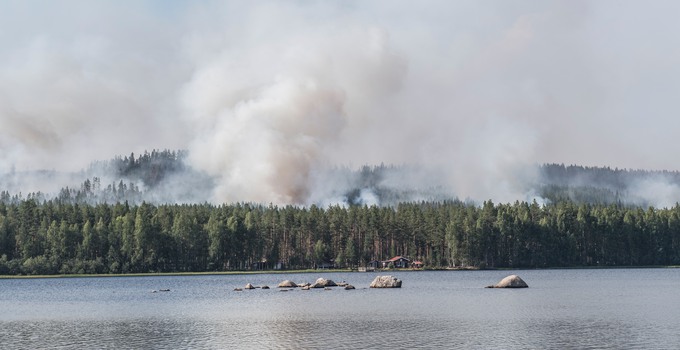
Photo: Mats Nyström/The Swedish Armed Forces.
Political science
Political science at the Swedish Defence University is unique in its special focus on security and crisis management. The subject is at the same time theoretically broad, and draws on a wide range of related fields, such as international relations, political communication, public administration, and political theory as well as drawing inspiration from other research within and outside of political science.
In an increasingly uncertain world characterised by great power rivalry, conflicts and wars, disinformation, disasters, environmental degradation, pandemics, and other crises, there is a vital need for in-depth knowledge and a diversity of analytical perspectives.
Political science research at the Swedish Defence University analyses how security and insecurity are created, who security is for, and how crises are prevented and handled in Swedish, European, and global contexts. We explore threats, conflicts, decision-making processes, communication processes, identity construction, and ethical dilemmas concerning the state, society, and individual, with a special focus on Sweden and the Nordic countries, the European Union, the United States, Russia, and East Asia.
The aim of our research and education is to contribute a more complex and nuanced understanding of the world. Our researchers regularly share their expertise in national and international media, advising policymakers, participating in commissioned training, and informing the public on current issues.
Research in political science at the Swedish Defence University can be divided into two overarching themes - security studies and crisis management - and several specialisations, which organise researchers as well as doctoral students.
Security studies
Our research within security studies is multifaceted and consists of a great variety of theoretical approaches and empirical themes. Traditional and critical perspectives are brought to bear in illuminating problems such as national security policy, great power politics, geostrategic rivalry, and the role that diplomacy and disinformation exert on international politics. Research in the department is characterised by a high degree of societal and political relevance, as well as an ambition to understand and explain complex processes that help create, sustain, and undermine security orders.
Researchers in security studies
Crisis management
Crisis management revolves around how different actors handle different crises, such as pandemics (COVID-19), terror attacks, climate change and disasters, but also the value conflicts that crises can give rise to. We are interested in crises as political and bureaucratic phenomena. What crisis management capabilities do the European Union, national administrations, and international organisations possess? How do crisis management actors communicate with the public during a crisis? How can we learn from a crisis to become better prepared for future crises? Crisis management research is interdisciplinary and uses theories of both antagonistic and non-antagonistic threats.
Researchers in crisis management
Research areas in political science
Publications
Staff
Here you can search for employees at the Department of Political Science:
